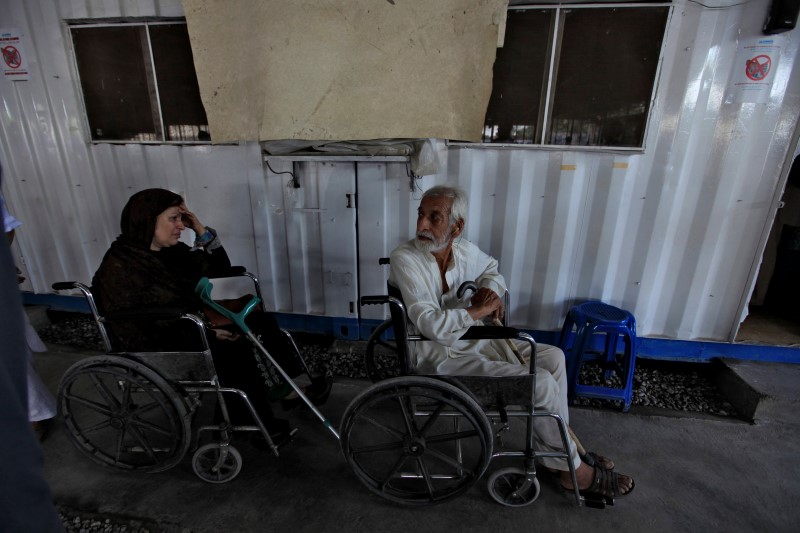By Asad Hashim
PESHAWAR, Pakistan (Reuters) - The United Nations refugee chief on Thursday urged Pakistanis not to blame Afghan refugees for terrorism in their country, amid growing public calls for their deportation and worsening relations between the two neighbors.
Warning that the roughly 2.5 million Afghan refugees in Pakistan risked becoming a "forgotten" crisis, UN High Commissioner for Refugees Filippo Grandi called on the international community to invest more funds to help them.
"My appeal is that, not only to the authorities but also to the local population: refugees as you know are not terrorists," Grandi said during a visit to a repatriation center outside the northwestern Pakistan city of Peshawar.
Pakistani officials have recently hinted at the possibility of deporting Afghan refugees, amid tense relations with Kabul.
A decision to renew their legal status by June 30 has not yet been announced, although past deadlines have been extended at the last minute.
The number of Afghans voluntarily returning home is down sharply this year as violence worsens in Afghanistan, where the government and its U.S. allies are fighting a stubborn Taliban insurgency.
So far, about 6,000 Afghans have chosen to return home from Pakistan in 2016, compared with 58,211 voluntary repatriations last year, according to the UNHCR.
At the repatriation center, refugees wiped the sweat from their faces as they waited in sweltering heat for their cases to be processed, a necessary step before they can set off on the journey home.
Many Afghan refugees say they are being pressured to go back by the authorities, amid worsening diplomatic relations between Afghanistan and Pakistan.
A recent border spat between the two at the nearby Torkham crossing left four dead and thousands stranded.
"I grew up here, but right now, the situation is not good," said Manzoor Hamdard, 30, one of about 50 people at the center. His family fled Afghanistan 35 years ago.
"We are poor people, and the police come and take money from us," added Hamdard, who will move with his family of 15 to their native Baghlan province, in northern Afghanistan.
"We've run out of energy to deal with this."
Huma Zafar, a community leader in an Afghan refugee tribal council, added: "Whatever the relations are, good or bad, refugees should not be affected by it."
TOLERANCE AT ITS LIMIT?
On Monday, Sartaj Aziz, Pakistan's foreign policy chief, told a Pakistani television channel that Afghan refugee camps had become "safe havens for terrorists".
On Wednesday, Pakistani federal minister Abdul Qadir Baloch warned that Pakistan was not willing to host Afghan refugees indefinitely.
"In view of the security and socioeconomic impact, the tolerance level of the host communities has reached its threshold and cannot be overstretched," he said, adding, however, that Pakistan would not use force to evict refugees.
Pakistan has the second-largest refugee population in the world, with more than 1.5 million registered and about a million unregistered refugees from Afghanistan, most of whom fled the Soviet invasion in 1979.
UNHCR chief Grandi said he had made the case for extending the June 30 deadline to the government in talks during his two-day visit to Pakistan.
He also stressed the need for the international community to fund efforts to support Afghan refugees.
"I have come here to the region on the week of World Refugee Day to highlight that Afghan refugees should not be forgotten," he said.
